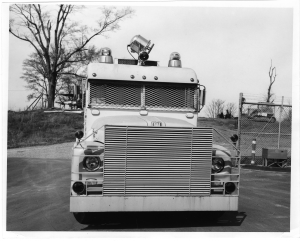Articles
 Issues of desegregation, states’ rights, voting rights and civil rights, consumed
the national press and southern press in 1964.
Issues of desegregation, states’ rights, voting rights and civil rights, consumed
the national press and southern press in 1964.
- The New York Times reported on March 8, 1964, in “Police Fear Crisis in Jackson, Miss.” that Jackson Mayor Allen Thompson wanted to bar demonstrations by African Americans. To intimidate those who might consider demonstrating, he bought 200 shotguns and ordered 50 more; the weapons were loaded with buckshot, carried in patrol cars, and mounted on motorcycles. Two city trucks were turned into troop carriers and three flat-bed trailers converted to paddy wagons. The force also included a vehicle known as “Thompson’s Tank” that carried ten officers and two drivers with shotguns protruding from gun ports. The article quotes Thompson as saying “We aren’t going to turn this city or this state over to intimidators or people intent on unlawful actions that will lead to violence.” The article further explains that Thompson “considered any demonstration or assembly by Negroes, peaceful or not, ‘unlawful demonstration.'”
- The major daily newspaper in the state capital of Jackson, Mississippi, was the Jackson Clarion Ledger. Reading its columns and letters to the editors is like listening in on a very angry
conversation in which Mississippi white conservatives talked about the treachery of
change.
- Poem, Jackson Clarion Ledger, July 13, 1964
- This poem is powerfully worded and serves as a vivid illustration of white anger in response to the 1964 Civil Rights Act. The author, William D. Waugh, was a pastor of a Jackson church. Here he railed against federal intrusion in the South and ordered Attorney General Robert Kennedy to go to hell. He also criticized CIA Director Allen Dulles for snooping “around to see what he could tell.”
- Letters to Editor, Jackson Clarion Ledger, July 8, 1964
- These letters exemplify the majority viewpoint of white Mississippians in response to the 1964 Civil Rights Act. They represent the voices of the Jim Crow South, where “the southern way” of segregation was a quest for personal and regional freedom.
- From Dr. W. M. Caskey: Thomas H. Watkins, a Jackson lawyer, spoke out against the Civil Rights Act of 1964, describing it as a punishment for the white South.
- From F. Stewart Byers: The Civil Rights Act of 1964 meant a loss of freedom for the South.
- From Dennis Smith: The Civil Rights Bill of 1964 would create hatred.